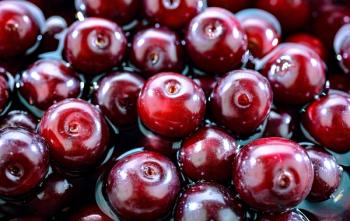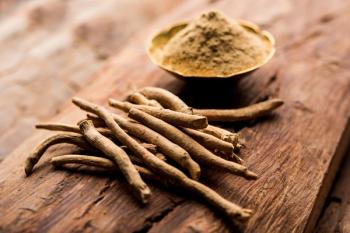
- Nutritional Outlook Vol. 18 No. 5
- Volume 18
- Issue 5
Herbal Ingredients Target Metabolic Syndrome
There is global opportunity for dietary supplement ingredients that address metabolic health, the companies all say.
More dietary supplement ingredient suppliers are focusing on metabolic syndrome, an increasingly prevalent condition encompassing high blood pressure and cholesterol, high blood sugar, and obesity that can lead to type 2 diabetes and heart disease. The latest come from supplier Monteloeder in Spain and from distributor SourceOne Global Partners (Chicago) and its supplier partner Santal Solutions (Appleton, WI).
Monteloeder’s new MetabolAid ingredient marries hibiscus species Hibiscus sabdariffa and lemon verbena (Aloysia triphylla). According to the company, the ingredient was four years in development.
So far, the company has completed preclinical animal studies that it says demonstrated MetabolAid helped activate PPAR-alpha, a receptor that promotes fat breakdown and helps lower cholesterol, while also activating the protein AMPK, which helps burn calories. In the mice, researchers also observed inhibition of FASN, which is an enzyme promoting fat creation.
The company has now embarked on a 50-subject placebo-controlled pilot clinical study in Spain on “overweight and moderately obese” human volunteers, reporting that “preliminary outcomes are very promising” following dosages of 500 mg of MetabolAid. Specifically, early reports show the MetabolAid group experiencing a greater reduction in blood pressure, higher levels of HDL cholesterol, and a reduction in LDL cholesterol.
SourceOne Global Partners has teamed up with Santal Solutions on Santal’s LeptiPure ingredient for metabolic health. LeptiPure combines two herbal extracts, Gymnema sylvestre and Tinospora cordifolia.
The Gymnema sylvestre extract in LeptiPure is an existing patented ingredient, GymnePure, that SourceOne says is more bioavailable and bioactive than standard Gymnema sylvestre extracts. When marketed alone for blood sugar support, GymnePure helps increase insulin production and healthy triglyceride and cholesterol levels. Meanwhile, animal studies have shown that Tinospora cordifolia may help maintain healthy glucose and lipid metabolism. When combined, the two ingredients in LeptiPure address many specific facets of metabolic health, including blood glucose, cytokine and free radical balance, and healthy cholesterol and triglyceride levels, among others, the companies say.
So far, the companies have done initial clinical studies, which they say showed that LeptiPure can increase adiponectin levels by 12% and decrease leptin levels by 25%. Both are hormones implicated in healthy weight management and metabolism. “The initial clinical study results are very encouraging because the science is clear. Improved ratio of leptin to adiponectin levels up to 37% with LeptiPure is directly related to healthy metabolic flexibility and supporting the body’s natural ability to maintain a healthy weight,” said Santal Solutions’ CEO Arun K. Chatterji, PhD, in a press release.
There is global opportunity for dietary supplement ingredients that address metabolic health, the companies all say. “Metabolic syndrome is a global problem,” said Fernando Cartagena, director of Monteloeder, in a press release. “It is estimated to affect 40% of Americans and 30% of Europeans aged 50 years and over, and a solution to this epidemic is required urgently. However, in spite of this, there’s a surprising lack of approved and effective natural products to address metabolic syndrome.”
Also read:
Editor-in-Chief
Nutritional Outlook magazine
jennifer.grebow@ubm.com
Photo ©
Articles in this issue
over 10 years ago
Vitamin E Research Ramps Upover 10 years ago
Clean Label: Everyone’s Doing Itover 10 years ago
Gluten-Free Foods Go Mainstreamover 10 years ago
Creating the Right Alternative Sweetener Blend Isn’t a Piece of Cakeover 10 years ago
What’s Next for Aloe Drinks?over 10 years ago
Are Enzyme Dietary Supplements Safe for Celiacs?over 10 years ago
Vitamin E's Alternative Sourcesover 10 years ago
Blood Sugar Supplements: Postprandial Powerover 10 years ago
Coconut Sugar Is the Fastest-Growing Natural Sweetener in the U.S.over 10 years ago
Are Dietary Supplements Going Gluten-Free?Newsletter
From ingredient science to consumer trends, get the intel you need to stay competitive in the nutrition space—subscribe now to Nutritional Outlook.




